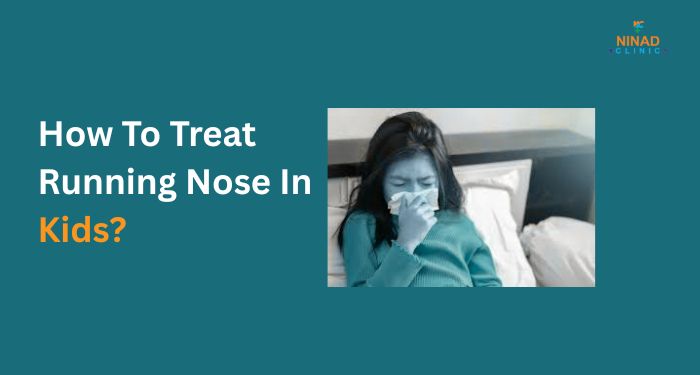A running nose in children is one of the most common health concerns parents face. Whether it’s due to a common cold, seasonal changes, allergies, or an infection, that constant nasal drip can be quite uncomfortable for your little one. While a runny nose is usually harmless and self-limiting, it can sometimes indicate underlying issues that require medical attention. Understanding its causes, home remedies, and when to consult the Best ENT Specialist in Pimple Nilakh can help ensure your child recovers quickly and comfortably.
What Causes a Running Nose in Kids?
A running nose occurs when the nasal tissues and blood vessels produce excess mucus to flush out irritants such as viruses, allergens, or dust. In children, their immune systems are still developing, making them more prone to colds and infections. Some of the most common causes include:
-
Common Cold: Viral infections are the leading cause of a runny nose. Kids may catch colds frequently due to school or playgroup exposure.
-
Allergies: Dust, pollen, pet dander, or mold can trigger allergic rhinitis, leading to sneezing, itching, and a runny nose.
-
Sinus Infection: Sinusitis can cause thick nasal discharge, congestion, and sometimes facial pain.
-
Weather Changes: Sudden exposure to cold or dry air can irritate nasal passages, causing mucus buildup.
-
Irritants: Smoke, perfumes, or pollution can cause temporary nasal irritation.
In most cases, a running nose clears up in a few days, but persistent or recurrent episodes may require a detailed evaluation by an ENT specialist.
Home Remedies for a Running Nose in Kids
Before rushing to medications, parents can try some gentle home remedies to ease their child’s discomfort. These natural methods help clear nasal congestion and keep your child comfortable while their body fights the infection.
1. Steam Inhalation:
Steam helps loosen mucus and clear nasal passages. Have your child sit in a steamy bathroom or inhale steam from a bowl of hot water under supervision.
2. Saline Nasal Drops:
Saline drops or sprays help keep the nasal passages moist and wash away irritants. They are safe and effective for children of all ages.
3. Humidifier:
Dry air can worsen nasal irritation. Use a cool-mist humidifier in your child’s room to keep the air moist, especially during winter or when using air conditioners.
4. Hydration:
Encourage your child to drink plenty of fluids, such as water, soups, and fresh juices. Proper hydration thins the mucus, making it easier to expel.
5. Warm Compress:
Applying a warm, damp cloth on the nose and forehead helps relieve sinus pressure and congestion.
6. Rest:
Adequate rest boosts the immune system, allowing your child’s body to fight infections more effectively.
Medications and Medical Treatment
If home remedies don’t improve the condition or if your child has a fever, thick yellow-green mucus, or breathing difficulties, it’s time to seek professional medical advice. The Best ENT Specialist in Pimple Nilakh can identify the exact cause and recommend suitable treatment.
1. Antihistamines:
For allergy-related runny noses, mild antihistamines may be prescribed to reduce nasal discharge and sneezing.
2. Nasal Sprays:
Decongestant nasal sprays can provide quick relief from congestion but should be used only under medical guidance and for short durations.
3. Antibiotics:
If a bacterial infection such as sinusitis is diagnosed, antibiotics may be prescribed. However, most runny noses are viral and do not need antibiotics.
4. Allergy Management:
In children with chronic allergies, allergy testing and desensitization therapies may be recommended by the ENT specialist.
When to Consult an ENT Specialist
While most cases of runny noses are mild, you should consult an ENT specialist if:
-
The symptoms last longer than 10 days
-
The nasal discharge is thick, yellow, or foul-smelling
-
Your child has fever, ear pain, or sinus pressure
-
Breathing through the nose becomes difficult
-
The problem keeps recurring
An expert evaluation can rule out conditions like sinusitis, adenoid hypertrophy, nasal polyps, or chronic allergies that may be causing persistent nasal issues.
Why Consult the Best ENT Specialist in Pimple Nilakh?
Choosing the Best ENT Specialist in Pimple Nilakh ensures that your child receives comprehensive and compassionate care. These specialists are highly trained in diagnosing and managing ENT-related problems in children, using advanced diagnostic tools like nasal endoscopy or allergy testing to identify root causes.
A qualified ENT doctor will not only treat the current symptoms but also guide you on preventive measures — from proper nasal hygiene to managing environmental triggers. Early diagnosis and the right treatment plan can prevent complications like ear infections, sinusitis, or breathing problems.
Preventing a Runny Nose in Kids
While it’s impossible to completely prevent colds or nasal irritation, a few simple habits can reduce their frequency:
-
Teach your child to wash their hands regularly to prevent infections.
-
Avoid exposure to smoke, dust, and strong odors.
-
Keep your child’s vaccinations up to date.
-
Encourage a balanced diet rich in fruits, vegetables, and fluids.
-
Ensure proper rest and outdoor play to boost immunity.
Final Thoughts
A running nose in kids is usually a temporary and manageable condition, but persistent or severe symptoms should never be ignored. Home care can ease mild cases, but for frequent or complicated nasal problems, expert medical attention is essential.
Consult the Best ENT Specialist in Pimple Nilakh for a thorough evaluation and effective treatment. With timely intervention, your child can breathe easier, recover faster, and stay healthy all year round.

